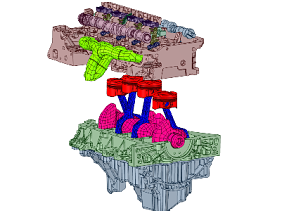Physical Digital provides mobile industrial 3D scanning services for high-end clients. SME caught up with founder Tim Rapley to find out more…
How do you use social media? Does it help you engage with your client base?
We engage with our clients through Twitter (@p2dme) and LinkedIn (Physical Digital Limited), which enables us to share some of our less secret projects and keep in touch with the latest trends and developments. We also have a Youtube channel (Physical Digital Ltd) which we keep updated with projects and case studies that we are able to share and with our charitable event photos and videos.
What new technology/apps are you considering using?
We like to keep abreast of the latest advances but at the moment there is nothing we would consider using that would advantage us in our relationships with our clients.
What technology/apps have you been most impressed with over the past 12 months?
We use online dual accounting technology to support the finance function and have been impressed with Waze for live traffic updates to help us get around the country to our clients on time.
What is your vision for the future? Are you looking to expand?
Our vision is to continue to grow and expand our services to an even wider range of clients. The latest addition to our 3D scanning capabilities – the ScanBox – allows us to offer a new spectrum of inspection services to clients and opens up vital opportunities for British manufacturing. It is exciting to have such a significant involvement in the resurgence of UK industry.
Final thoughts…?
As an SME, if you aren’t developing then you are stagnating. Much of the time of the senior management team is taken up by research and development and by investigating new opportunities, partnerships, services and equipment. We believe this is essential for growth and survival in today’s competitive marketplace, as well as making every day different and interesting.
One final point to add is that it is difficult for SMEs to compete for work on an equal footing with universities, which have received funding to perform certain functions and do not have the same considerations as commercial organisations, therefore are able to offer advantageous rates for projects. If universities have received funding from UK or European grants they should not be allowed to compete on the open market since they have an intrinsically unfair advantage over commercial businesses.


